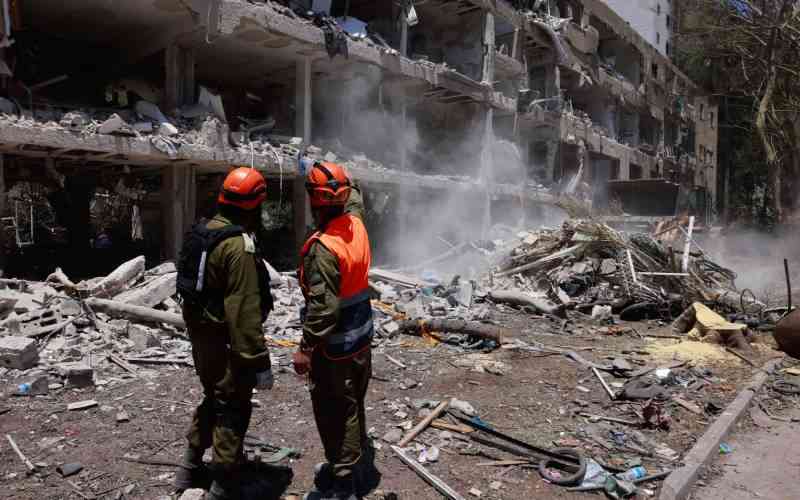What happens next is largely in Iran's control - but there are no good choices | World News | Sky News
As the sun rises above Jerusalem this morning, Israelis will be waking to the news that America has joined their war and attacked Iran. It will be met with mixed feelings.
While the new day brings a comfort in US military support there will also be deep trepidation that this war has entered a dangerous and potentially uncontrollable phase.
Benjamin Netanyahu released a video statement praising the US president and saying peace comes through strength; Donald Trump addressed the American nation and warned Iran he would not hesitate to order further action if it retaliates.
What happens next is largely in Iran's control. What they choose to do, will determine the future of this region.
The question is now not whether they will respond, but how?
Please use Chrome browser for a more accessible video player
Iran has faced a humiliating pounding from Israeli jets over nine days and now suffered massive attacks on their celebrated nuclear facilities by a country they call "The Great Satan"; there will be a feeling of national humiliation and anger, and the government will need to show its people it remains strong.
Developing a nuclear programme has taken many decades and comes at vast cost: billions and billions of dollars and heavy international sanctions. That all now lies in tatters. How does the government explain that to its people, many of whom have suffered at the expense of these grand ambitions and are opposed to the draconian leadership they live under?

Ayatollah Ali Khamenei is often described as the world's longest-serving dictator. He hasn't survived by being reckless but even though the US strikes weren't aimed at regime change, Khamanei's future is now more precarious than ever.
The government rhetoric and state television channels will promise fire and victory, but the reality isn't simple.
There will be voices close to the Supreme Leader, especially in the Revolutionary Guard, encouraging a strong response. The moderates will likely urge caution, wary of dragging the US into a wider, more sustained conflict that Iran couldn't win.
Spreaker This content is provided by Spreaker, which may be using cookies and other technologies. To show you this content, we need your permission to use cookies. You can use the buttons below to amend your preferences to enable Spreaker cookies or to allow those cookies just once. You can change your settings at any time via the Privacy Options. Unfortunately we have been unable to verify if you have consented to Spreaker cookies. To view this content you can use the button below to allow Spreaker cookies for this session only.
👉 Listen to Sky News Daily on your podcast app 👈
It's unclear how much more Iran can throw at Israel. Ballistic missiles have been fired at the country every day since the war began, but in decreasing numbers as Israel has systematically targeted launch sites and stockpiles.
Iran's proxies, Hezbollah and Hamas, are severely degraded and the Assad regime in Syria is no more. This was all supposed to be the first line of defence, a deterrence against an Israel attack. That shield has collapsed.
The Houthis remain defiant but their firepower is limited.
Please use Chrome browser for a more accessible video player
Analysis: If Israel breaks Iran it will end up owning the chaos
The US attacks were against Iran's nuclear sites, not senior Iranian officials. Strikes on US bases in the region would therefore be the most logical 'like-for-like' response.
If they choose to widen the conflict, Iran could now target oil facilities in the Gulf or try to close off the globally important Strait of Hormuz. Either of those options would have international consequences.
Please use Chrome browser for a more accessible video player
Shia militia in Iraq could be hard to control if they decide to act unilaterally. Iraqi security forces have reportedly surrounded the US Embassy in Baghdad in anticipation of violence.
There is a possibility Iran could do something smaller and symbolic as a way of saving face, having the final word and giving the region an off-ramp. That will be the hope in Washington.

Follow The World
Listen to The World with Richard Engel and Yalda Hakim every Wednesday
But even in that best-case scenario, it will surely have to be something more than a token response; Iran is reeling, severely weakened internally and externally. If they escalate, they risk a severe US response that could be a death blow.
If they capitulate, the government faces major domestic dissent and reputational damage from which it might never recover.
For the Supreme Leader this morning, there are no good choices.








